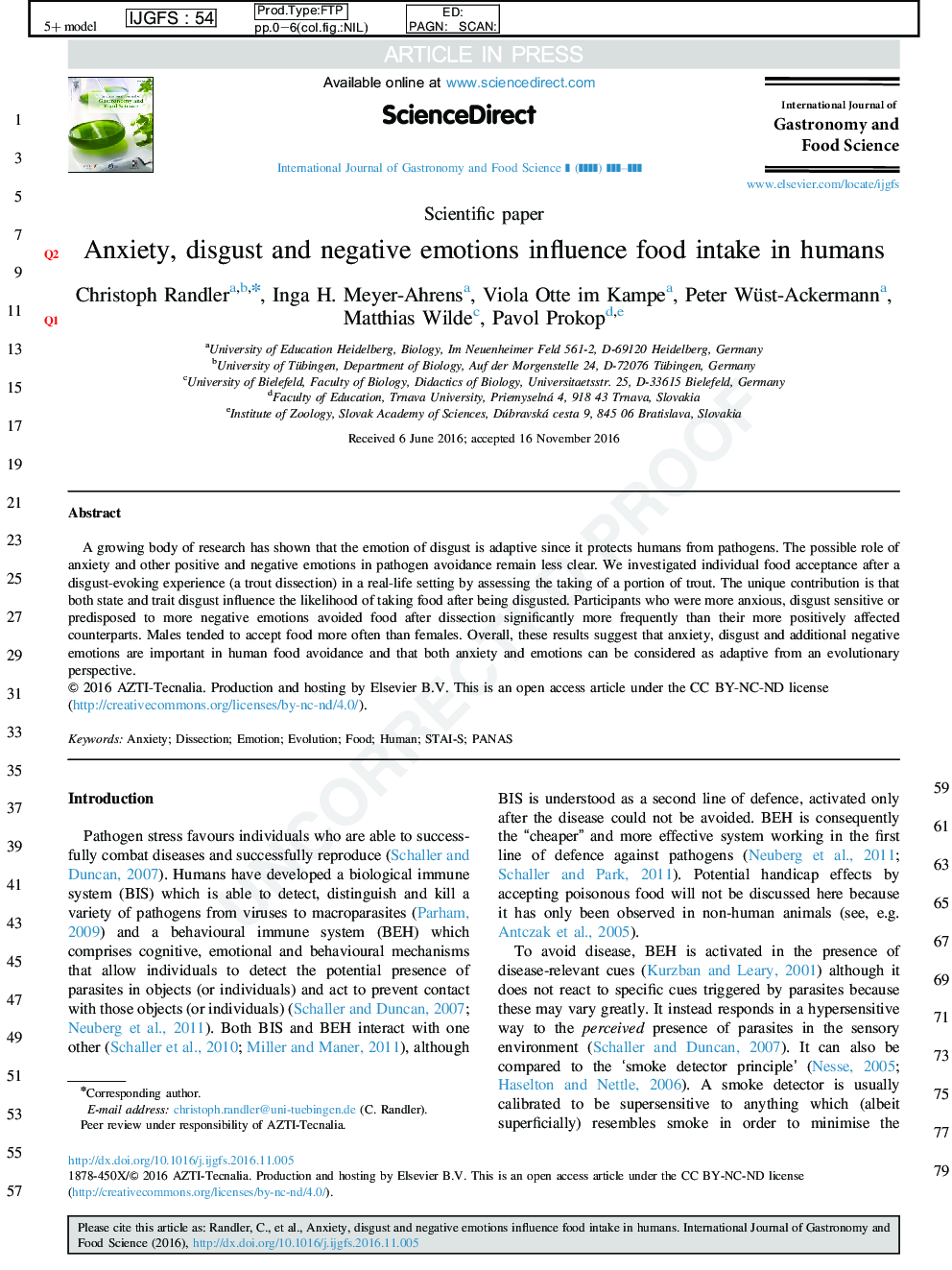| Article ID | Journal | Published Year | Pages | File Type |
|---|---|---|---|---|
| 7535078 | International Journal of Gastronomy and Food Science | 2017 | 6 Pages |
Abstract
A growing body of research has shown that the emotion of disgust is adaptive since it protects humans from pathogens. The possible role of anxiety and other positive and negative emotions in pathogen avoidance remain less clear. We investigated individual food acceptance after a disgust-evoking experience (a trout dissection) in a real-life setting by assessing the taking of a portion of trout. The unique contribution is that both state and trait disgust influence the likelihood of taking food after being disgusted. Participants who were more anxious, disgust sensitive or predisposed to more negative emotions avoided food after dissection significantly more frequently than their more positively affected counterparts. Males tended to accept food more often than females. Overall, these results suggest that anxiety, disgust and additional negative emotions are important in human food avoidance and that both anxiety and emotions can be considered as adaptive from an evolutionary perspective.
Related Topics
Life Sciences
Agricultural and Biological Sciences
Agricultural and Biological Sciences (General)
Authors
Christoph Randler, Inga H. Desch, Viola Otte im Kampe, Peter Wüst-Ackermann, Matthias Wilde, Pavol Prokop,
